-
 Bitcoin
Bitcoin $118900
-2.33% -
 Ethereum
Ethereum $4288
-0.13% -
 XRP
XRP $3.151
-3.21% -
 Tether USDt
Tether USDt $1.000
0.02% -
 BNB
BNB $809.5
-1.17% -
 Solana
Solana $175.7
-4.75% -
 USDC
USDC $0.0000
0.01% -
 Dogecoin
Dogecoin $0.2246
-5.75% -
 TRON
TRON $0.3473
2.19% -
 Cardano
Cardano $0.7809
-5.18% -
 Chainlink
Chainlink $21.38
-3.48% -
 Hyperliquid
Hyperliquid $43.29
-5.53% -
 Stellar
Stellar $0.4375
-3.21% -
 Sui
Sui $3.685
-6.68% -
 Bitcoin Cash
Bitcoin Cash $595.2
3.50% -
 Hedera
Hedera $0.2483
-6.60% -
 Ethena USDe
Ethena USDe $1.001
-0.01% -
 Avalanche
Avalanche $23.03
-5.28% -
 Litecoin
Litecoin $119.5
-5.02% -
 Toncoin
Toncoin $3.395
-0.07% -
 UNUS SED LEO
UNUS SED LEO $9.007
-1.19% -
 Shiba Inu
Shiba Inu $0.00001304
-5.44% -
 Uniswap
Uniswap $11.35
1.57% -
 Polkadot
Polkadot $3.898
-5.43% -
 Cronos
Cronos $0.1671
-0.16% -
 Ethena
Ethena $0.8121
-2.45% -
 Dai
Dai $1.000
0.02% -
 Bitget Token
Bitget Token $4.412
-1.73% -
 Monero
Monero $264.0
-0.64% -
 Pepe
Pepe $0.00001128
-8.12%
What is the difference between contract trading and leverage trading in the currency circle?
Contract trading and leverage trading offer different exposures to the currency market, with contract trading focusing on future price speculation and leveraging underlying asset ownership.
Dec 16, 2024 at 11:19 am
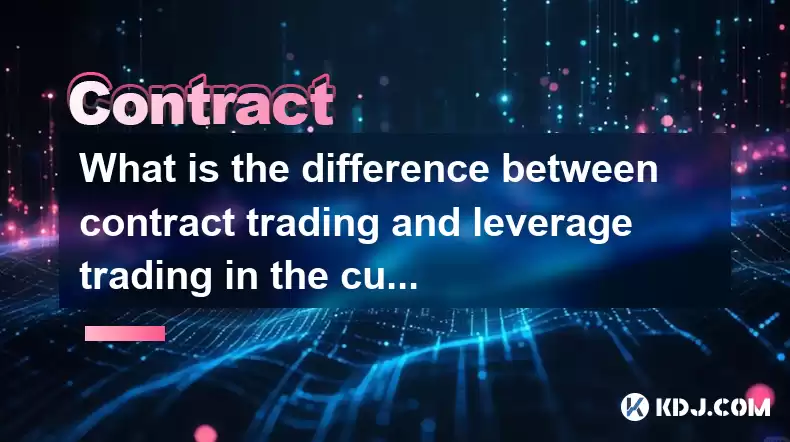
What is the Difference Between Contract Trading and Leverage Trading in the Currency Circle?
Contract trading and leverage trading are two popular trading strategies in the currency circle, but they have distinct differences in terms of risk, reward, and suitability. Understanding these differences is crucial for traders looking to navigate the volatile world of cryptocurrency markets.
1. Definition of Contract Trading:
Contract trading, also known as futures or perpetual contract trading, involves trading financial instruments representing the underlying asset without directly owning it. Traders speculate on the future price of the asset and can enter into long or short positions. Long positions are bets that the underlying asset will increase in value, while short positions bet on price declines.
Key Features of Contract Trading:
- Leverage: Traders can employ leverage, which allows them to trade with larger positions relative to their account balance. This increases potential profits but also magnifies losses.
- Mark Price: The mark price represents the current market value of the contract and is used for settlement and determining profit/loss.
- Funding Rates: Contract trading involves funding rates, which are periodic payments made between long and short positions to maintain price parity with the spot market.
2. Definition of Leverage Trading:
Leverage trading, also known as margin trading, involves borrowing funds from a broker to increase the size of trades. Traders can trade with a multiple of their account balance, allowing for potentially higher profits but also greater risk.
Key Features of Leverage Trading:
- Margin: Traders must maintain a certain amount of margin in their accounts to support their leveraged positions.
- Liquidation: If the market moves against the trader's position and their equity falls below a certain threshold, the broker may liquidate the position to prevent further losses.
- Interest Payments: Traders are charged interest on the borrowed funds, which can impact profitability.
3. Comparison of Contract Trading and Leverage Trading:
a. Similarities:
- Both contract trading and leverage trading allow traders to increase their exposure to the market and potentially amplify profits.
- Both strategies involve the use of margin or leverage to trade with a larger position size.
b. Differences:
- Underlying Asset: In contract trading, the underlying asset is not directly owned, whereas in leverage trading, traders actually own the underlying asset.
- Settlement: Contract trading settles through periodic mark price adjustments, while leverage trading settles through the delivery or purchase of the underlying asset.
- Funding Rates: Contract trading involves funding rates, while leverage trading typically does not.
- Liquidation: Contract trading positions can be liquidated based on the mark price, while leverage trading positions are liquidated based on the equity in the trading account.
4. Factors Consider When Choosing Between Contract Trading and Leverage Trading:
- Risk Tolerance: Contract trading can be more risky than leverage trading due to funding rates and the use of mark prices for settlement. Leverage trading requires managing margin levels and the risk of liquidation.
- Trading Horizon: Contract trading is more suited for short-term trades as funding rates can eat into profits over time. Leverage trading can be more beneficial for long-term trades where the borrowed capital can be used for compounding returns.
- Capital Availability: Leverage trading requires traders to have sufficient capital to support a margin position. Contract trading allows traders to use external leverage without locking up funds in a margin account.
Disclaimer:info@kdj.com
The information provided is not trading advice. kdj.com does not assume any responsibility for any investments made based on the information provided in this article. Cryptocurrencies are highly volatile and it is highly recommended that you invest with caution after thorough research!
If you believe that the content used on this website infringes your copyright, please contact us immediately (info@kdj.com) and we will delete it promptly.
- Dogecoin, Presale, Surge: Riding the Meme Coin Wave
- 2025-08-12 11:10:12
- Dogecoin, Tron, and the ROI Reality Check: What's a Crypto Investor to Do?
- 2025-08-12 11:15:12
- Ethereum Layer-2 Scaling Competition Heats Up as ETH Breaks $4K
- 2025-08-12 10:30:12
- China Regulation, Stablecoins, and BNB Presale: Navigating the Crypto Landscape
- 2025-08-12 11:30:12
- Meme Coins, Investment, and Token Burns: What's Hot in 2025?
- 2025-08-12 10:30:12
- BlockDAG, Chainlink, Hedera: The Cryptos Enterprises are Eyeing
- 2025-08-12 09:30:12
Related knowledge
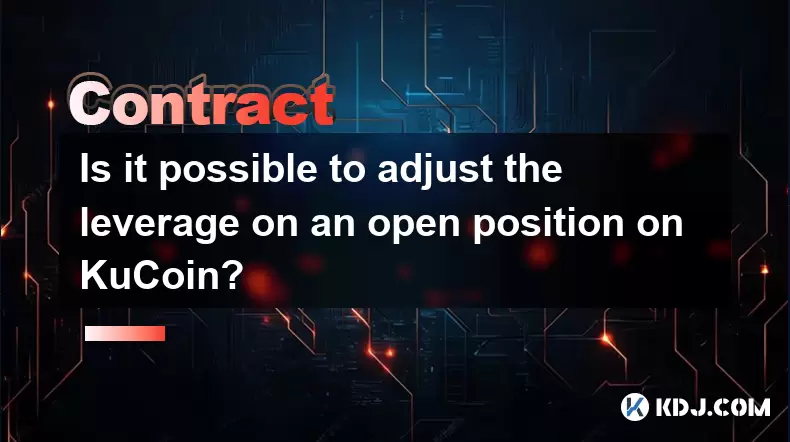
Is it possible to adjust the leverage on an open position on KuCoin?
Aug 09,2025 at 08:21pm
Understanding Leverage in KuCoin Futures TradingLeverage in KuCoin Futures allows traders to amplify their exposure to price movements by borrowing fu...

What cryptocurrencies are supported as collateral on KuCoin Futures?
Aug 11,2025 at 04:21am
Overview of KuCoin Futures and Collateral MechanismKuCoin Futures is a derivatives trading platform that allows users to trade perpetual and delivery ...
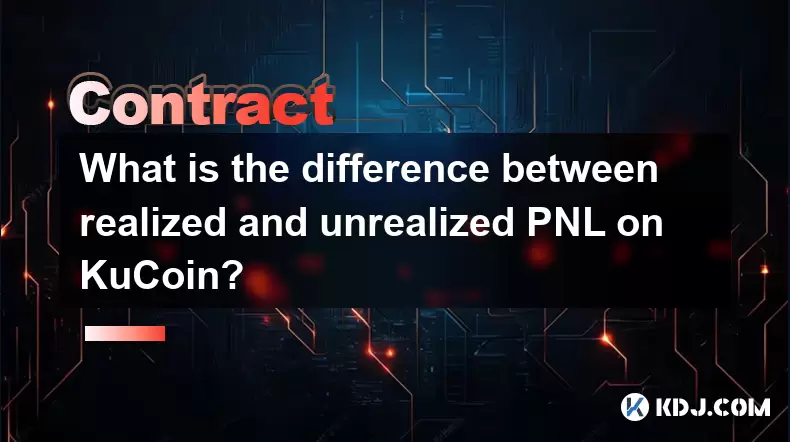
What is the difference between realized and unrealized PNL on KuCoin?
Aug 09,2025 at 01:49am
Understanding Realized and Unrealized PNL on KuCoinWhen trading on KuCoin, especially in futures and perpetual contracts, understanding the distinctio...

How does KuCoin Futures compare against Binance Futures in terms of features?
Aug 09,2025 at 03:22am
Trading Interface and User ExperienceThe trading interface is a critical component when comparing KuCoin Futures and Binance Futures, as it directly i...
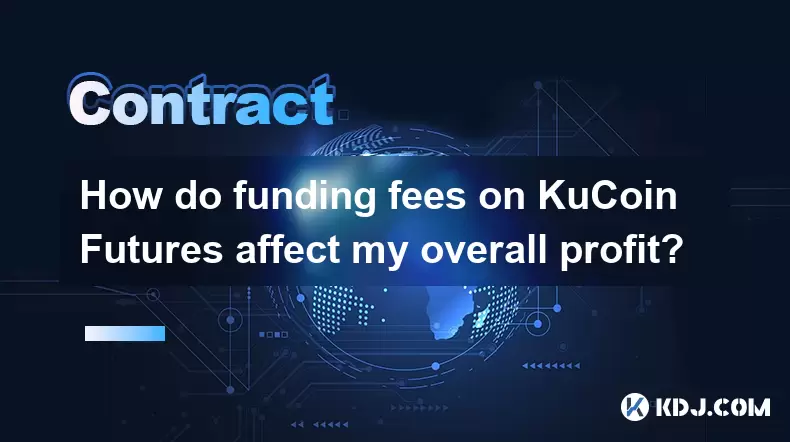
How do funding fees on KuCoin Futures affect my overall profit?
Aug 09,2025 at 08:22am
Understanding Funding Fees on KuCoin FuturesFunding fees on KuCoin Futures are periodic payments exchanged between long and short position holders to ...
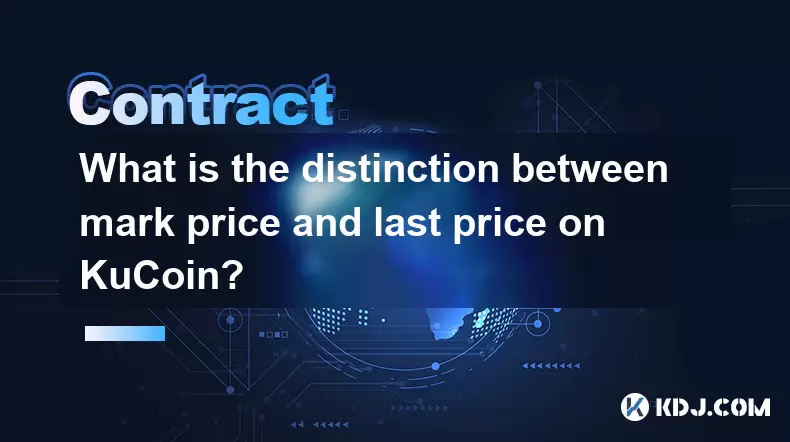
What is the distinction between mark price and last price on KuCoin?
Aug 08,2025 at 01:58pm
Understanding the Basics of Price in Cryptocurrency TradingIn cryptocurrency exchanges like KuCoin, two key price indicators frequently appear on trad...

Is it possible to adjust the leverage on an open position on KuCoin?
Aug 09,2025 at 08:21pm
Understanding Leverage in KuCoin Futures TradingLeverage in KuCoin Futures allows traders to amplify their exposure to price movements by borrowing fu...

What cryptocurrencies are supported as collateral on KuCoin Futures?
Aug 11,2025 at 04:21am
Overview of KuCoin Futures and Collateral MechanismKuCoin Futures is a derivatives trading platform that allows users to trade perpetual and delivery ...

What is the difference between realized and unrealized PNL on KuCoin?
Aug 09,2025 at 01:49am
Understanding Realized and Unrealized PNL on KuCoinWhen trading on KuCoin, especially in futures and perpetual contracts, understanding the distinctio...

How does KuCoin Futures compare against Binance Futures in terms of features?
Aug 09,2025 at 03:22am
Trading Interface and User ExperienceThe trading interface is a critical component when comparing KuCoin Futures and Binance Futures, as it directly i...

How do funding fees on KuCoin Futures affect my overall profit?
Aug 09,2025 at 08:22am
Understanding Funding Fees on KuCoin FuturesFunding fees on KuCoin Futures are periodic payments exchanged between long and short position holders to ...

What is the distinction between mark price and last price on KuCoin?
Aug 08,2025 at 01:58pm
Understanding the Basics of Price in Cryptocurrency TradingIn cryptocurrency exchanges like KuCoin, two key price indicators frequently appear on trad...
See all articles

























































































